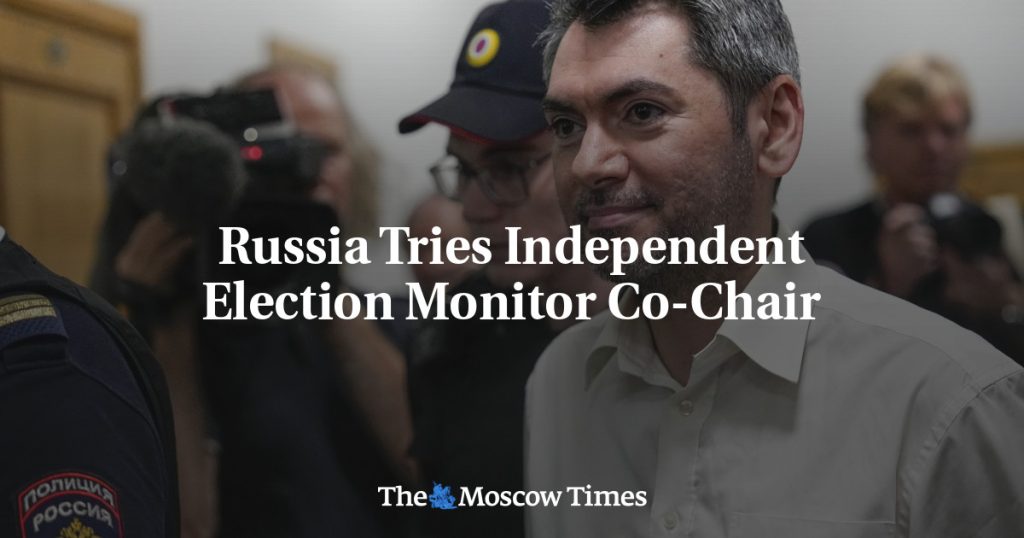Grigory Melkonyants, the co-chair of Golos, an independent Russian election monitoring watchdog, went on trial on charges of cooperating with an “undesirable” organization. This trial comes at a time when Moscow has been cracking down on critical voices, especially since the launch of its offensive in Ukraine. Melkonyants, who has denied the charges, has been in custody for over a year and could face up to six years in prison if found guilty. Golos, which monitors electoral campaigns and denounces vote rigging, is at the center of the prosecution’s case, which is based on alleged ties between the organization and a European monitor organization that Russia has banned as “undesirable.”
During Friday’s hearing at Moscow’s Basmanny District Court, Melkonyants pleaded not guilty, stating that he did not understand the accusations against him and maintains that the case should be closed due to the lack of a crime. Diplomats from various countries, including France, Germany, and New Zealand, attended the hearing to show their support. The prosecution has accused Melkonyants of acting in the interests of unfriendly foreign states, claiming that Golos is essentially a part of the European Network of Election Monitoring Organizations (ENEMO), which was declared “undesirable” in Russia in 2021. However, ENEMO has denied these claims, stating that it does not work with Golos and that Golos has not been a member of its network for quite some time. Golos has not been banned in Russia but was listed as a “foreign agent” by the Justice Ministry in 2021.
The international community has expressed concern over Melkonyants’s trial and the broader crackdown on critical voices in Russia. The presence of diplomats at the court hearing reflects the widespread alarm over the shrinking space for civil society and independent voices in the country. The prosecution’s case against Melkonyants raises questions about the independence of civil society organizations in Russia and the ability of individuals to engage in legitimate monitoring and oversight activities without facing harassment and persecution. The trial also comes against the backdrop of escalating tensions between Russia and Western countries over the conflict in Ukraine, with Moscow increasingly viewing domestic critics as potential threats to national security.
The charges against Melkonyants and the broader crackdown on civil society in Russia have raised concerns about the state of democracy and human rights in the country. The targeting of independent election monitoring organizations like Golos undermines the integrity of the electoral process and restricts citizens’ ability to participate in free and fair elections. The case against Melkonyants also highlights the risks faced by individuals and organizations that challenge the government’s narrative and seek to hold authorities accountable for their actions. As international attention focuses on Melkonyants’s trial, the outcome of the case will have implications not only for the future of civil society in Russia but also for the broader struggle for democracy and human rights around the world.
The trial of Grigory Melkonyants and the persecution of Golos represent a troubling trend of shrinking space for civil society in Russia, where independent voices and organizations face increasing pressure and harassment from the authorities. The case also underscores the risks inherent in monitoring and oversight activities, which have come under scrutiny in an environment of heightened political tensions and restrictions on dissent. As Melkonyants fights to defend his innocence and uphold the principles of transparency and accountability in the electoral process, the outcome of the trial will be closely watched by both domestic and international observers. The global community must continue to support individuals and organizations that are working to promote democracy, human rights, and the rule of law in the face of mounting challenges and threats to their work. The outcome of Melkonyants’s trial will be a test of Russia’s commitment to upholding fundamental freedoms and the rule of law in the face of increasing authoritarianism and repression.


